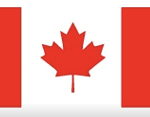Famous Mobsters in Las Vegas
Ghosts of Vegas Past: How the west was won by eastern crime lords.

The first wave of “wise guys” to set up shop in Las Vegas came from California, where strict laws against illegal gambling forced a hasty migration eastward in the 1930s. Among those pioneers was Tony “The Admiral” Cornero. A Prohibition-era bootlegger and convicted felon, he used his brothers Louis and Frank as front men to establish the city’s first true resort-casino; a 30-room hotel called the Meadows. Among the initial acts to appear there in 1931 were the Gumm Sisters, featuring nine-year-old Francis Ethel Gumm, who would later be known by her stage name, Judy Garland.
Another displaced Californian was a former Vice Squad Commander, Captain Guy McAfee, who had allegedly been the boss of all underground gaming in Los Angeles. He bought the Detra family’s original Pair-O-Dice Club on Highway 91 and turned the nightclub into a gambling hall named the 91 Club. It was McAfee who sarcastically first referred to the dusty seven-mile stretch of road leading into town as “The Strip.”
Las Vegas Mobsters – Meet the Syndicate

Such colorful characters notwithstanding, when it comes to famous mobsters associated with Las Vegas, the best-known were the “boys from out East” – a who’s who of mid-20th century criminals. Perhaps foremost among them was Mair Suchowljanky, a Jew who fled Poland in 1912 at the age of ten and changed his name in New York City to Meyer Lansky (left).
Lansky gained infamy with a gang of streetwise cohorts who worked for the city’s vice lords. They were into booze, heroin, loan-sharking, prostitution, extortion, bribery, hijacking, black-marketeering, money laundering and even murder. But of all the vices, his favorite was gambling because “whoever controlled the game won, and ‘all the rest are suckers.’”
Together with Sicilian immigrant and boyhood chum Charles “Lucky” Luciano, Lansky created a chain of illegal casinos and speakeasies all along the Eastern seaboard. Because he ran operations like a legitimate business, with revenue goals, profit-sharing for partners, bonuses for employees and defined territories, his organized crime network became widely known as “The Syndicate.’

Lansky liked the idea of legal gambling in Nevada. However, he couldn’t stand the heat, dust and smallness of Las Vegas and Reno. Instead of directing business personally, he used partners such as Gus Greenbaum, David “Davie” Berman and Moe Sedway to serve as his surrogates. One of those henchmen was a ruthless, Brooklyn-born thug with a penchant for flamboyance. His name was Benjamin “Bugsy” Siegel (right); best known for his role in opening the original Flamingo Resort in 1946, and his grisly murder in Los Angeles months later.
More Mob Connections on The Strip
After Bugsy’s death, the Syndicate maintained a low profile. They were investing quietly in hotels like the Thunderbird, the Sands and the Showboat, while quietly taking control of all the race and sports betting in Las Vegas. They had a little competition from Guy McAfee as well as former bootlegger Morris B. “Moe” Dalitz, whose funds from illegal gambling in Detroit and Cleveland helped finance the Desert Inn. There was also a Texan with a dubious criminal past, Benny Binion, who established Binion’s Horseshoe downtown. But it’s safe to say that during the 1950s, nearly all the newly built hotels were financed or operated with the mob’s backing.
Interestingly, one competitor Lansky and his crew never had to face was Chicago crime boss Al Capone. It wasn’t that the Windy City gangster had no interest in Nevada gambling. Quite the contrary, he was eyeing investments in 1931, as soon as gaming was legal. But from 1932 to 1939, Capone was behind bars for tax invasion and never got the opportunity to “play in the sandbox.”
What finally derailed the Syndicate’s near-monopoly out West was encroachment by the Italian Mafia, who slowly began buying shares in the Riviera, the Sands, the Sahara and other properties. The two rival organizations coexisted for several years, declaring Las Vegas a “free trade zone.” But renegade Mafioso who dabbled in prostitution and drugs attracted federal heat, and by the late 1960s, the long winning streak of the Eastern crime lords came to an end as corporations took over gambling in the West.
 Jackpotcity.com is our editorial pick for your gaming needs. Currently offering an entire suite of casino games, as well as a wide range of Canadian deposit options, JackPotCity truly offers world-class gaming.
Jackpotcity.com is our editorial pick for your gaming needs. Currently offering an entire suite of casino games, as well as a wide range of Canadian deposit options, JackPotCity truly offers world-class gaming.





